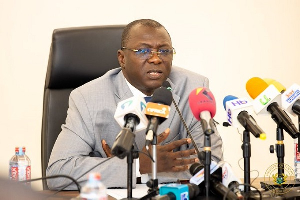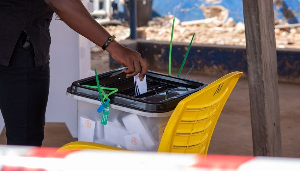Gabby Asare Otchere-Darko, prominent member of the governing New Patriotic Party( NPP) has reacted to the latest Afrobarometer report which, among others say many Ghanaians believe the country is headed in the wrong direction blaming the party for not being able to properly communicate its achievements.
“I have looked through the latest Afrobarometer survey which pulls out some interesting findings. For example, it shows the approval rating of President Akufo-Addo to be pretty high at 61%, which is way more than the 53.9 massive victory he registered in the 2016 presidential race…The NPP has also been inexplicably bad at making the case that it is actually the party of the people, the party that promotes policies and programmes which benefit the poorer masses. It has ceded that position to the party that is good at saying it is for the people bad awful in backing it with evidence. For the NPP the evidence is out there on the ground. The party must connect better with the masses and, at the same time, renew its natural alliance with the professional class,” Mr Otchere-Darko declared on Facebook on Facebook sighted by MyNewsGh.com
In his view, the findings that cast the government in a negative light point to the fact that Ghanaians hold the NPP to a higher standard than they do the NDC.
“Ghanaians may not be that happy with the NPP because their expectations of the NPP are much higher than of the NDC. Yet, they are still not convinced that John Mahama’s NDC is truly a comparable alternative. But, to take this for granted is the most dangerous political calculation any political group can make,” he added.
The Afrobarometer Report
Key findings in the Afrobarometer Survey conducted by the Centre for Democratic Development (CDD) show that six out of ten Ghanaians (59%) agree that the country is “going in the wrong direction.”
Citizens who see the country as “going in the right direction” reduced by 15% the percentage in 2017 to 35%.
Also three in 10 Ghanaians (30%) describe the country’s economic conditions as “fairly good” or “very good,” which is a little decline from the 35% recorded in 2017.
Click to view details



Politics of Monday, 2 December 2019
Source: mynewsgh.com

















